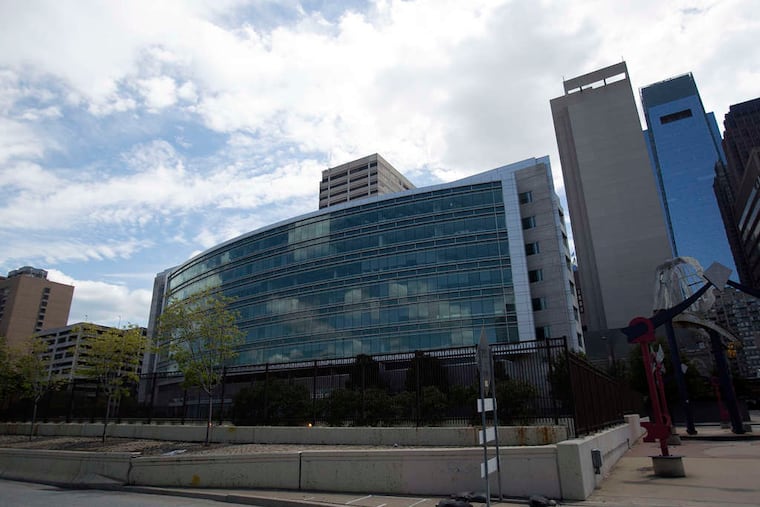The get-richbusiness of charter consulting
Charter schools spend millions on consulting and legal fees, but the money trail is hard to follow.

MANY OF the recent charter bond deals have been helped by Santilli & Thomson, a New Jersey-based firm that has made millions off consulting contracts and bond fees.
The firm, run by ex-School District of Philadelphia finance officials Gerald Santilli and Michael Thomson, touts on its website "more than 50 years of combined experience in municipal school management."
There is no way to know exactly how much Santilli & Thomson has earned in taxpayer-funded contracts from charter schools, according to a district spokesman. The firm did not respond to numerous requests for comment.
However, a Philly.com analysis of financial documents for several charter schools that received municipal bonds found that Santilli & Thomson has billed at least $5 million since 2010.
In the case of String Theory charter, the relationship began when founder Angela Corosanite attended a school-district meeting in the late 1990s as a ballet teacher interested in starting an after-school program. While there, she recalled in documents from an unrelated court case, she "was approached by a member of the Philadelphia school board" who said that she should consider applying to open a charter school instead.
Corosanite didn't name the school official, but within a year Gerald Santilli was acting as "business manager," helping set up the first String Theory school, then known as the Philadelphia Performing Arts Charter, in South Philadelphia.
After working for 14 years as executive director of fiscal management for the school district, Santilli moved into charter consulting full time in 1999, shortly before String Theory was founded.
Santilli personally helped found several other schools, like First Philadelphia Charter and its sister school, Tacony Academy, before starting his own consulting firm with Thomson.
"After a while, it appears [Santilli] realized that this could be a lucrative and growing business, and that he could make more money doing the work on his own," said former school district chief financial officer Michael Masch.
Santilli & Thomson was subpoenaed as part of a federal investigation into charter corruption in 2010, but no one there was ever charged with a crime and the firm's contracts have continued to grow. The charters that Santilli helped found have become some of his biggest clients and secured some of the biggest bond deals in city history.
What Santilli does to facilitate these arrangements is unclear. Consultants like Santilli & Thomson face little scrutiny from the Pennsylvania Department of Education.
What is clear is that Santilli & Thomson retains four lobbyists in Harrisburg. And although both partners are registered Republicans in New Jersey, they have together donated more than $12,000 to Pennsylvania Democrats since founding the company.
Santilli & Thomson also works closely with the Center City law firm Sand & Saidel, which specializes in workers' compensation cases, but provides legal services to a number of charter schools. Partner Daniel Saidel, brother of former City Controller Jonathan Saidel, declined to discuss the nature of his work with charters.
"I'd rather not talk about this because it's a deeply personal story," he said. "I don't like to live in the past."
Along with the $5 million that Santilli & Thomson has billed to charters between 2010 and 2014, Sand & Saidel has billed charter schools at least $1 million, according to financial filings.
Each firm also collects a portion of the "cost of issuance" fees attached to bond deals, which can run into the millions. In the case of String Theory, $1.5 million worth of settlement fees were built into the $55 million bond deal, although it's not clear how the money was split among different consultants.
Most of Santilli and Saidel's client schools have amassed bond debt while entering into complex lease arrangements that allow them to maximize the amount of money they receive from a state program designed to reimburse charters for a portion of their facilities' rental cost.
String Theory's new building, formerly used by GlaxoSmithKline, is actually owned by DeMedici II, a nonprofit controlled by Bensalem-based auto-parts manufacturer Javier Kuehnle and South Philly podiatrist Michael Zarro. Kuehnle and Zarro are board members of the school. String Theory effectively "rents" its building from itself, collecting $188,000 a year through the state's Charter School Lease Reimbursement Program.
Much of this money is then put toward debt service. The amount of rental reimbursements issued to Philadelphia charter schools has skyrocketed in the past four years, as Santilli's consulting and the need to pay interest to bondholders have also grown.
Reimbursements rose 79 percent - to $6.8 million annually - while the number of charter schools increased by just 20 percent, state records show. Only a fraction goes to schools that rent their buildings from unrelated owners.
The issue isn't limited to Philadelphia, according to state Auditor General Eugene DePasquale, who is conducting a statewide review of charter leases.
"About half the charter schools we've audited basically have this circular arrangement where there's an entity that owns the building and an entity that leases the building, and they're connected," he said.